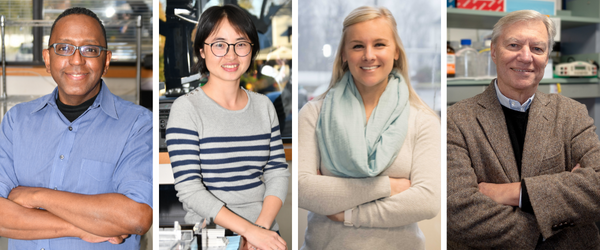The Czech Lab Reviews the Adipocyte Supersystem of Insulin and cAMP Signaling in Trends in Cell Biology
Date Posted: Monday, September 26, 2022The laboratory of Michael Czech, PhD was invited to write a scientific review for the metabolic research community in the journal Trends in Cell Biology. They examined the metabolic regulation of adipocytes by insulin receptor signaling pathway and the cAMP signaling pathway, activated by adrenergic receptor in fat cells. The two major signaling networks regulate virtually every organ and/or cell type in the human body and that of most mammals.
“Insulin and catecholamines, a neurotransmitter, usually play opposite roles,” said Adilson Guilherme, PhD, Associate Professor, UMass Chan Medical School. “Insulin stimulates lipids stored in adipocytes after a meal. Catecholamines on the other hand activate the cAMP signaling pathway to release lipids, or fatty acids, stored in fat cells, that can be used as fuel in tissues throughout the body under fasting conditions.”

(L-R) Adilson Guilherme, PhD, Hui Wang, PhD, Leslie Rowland, PhD, Michael Czech, PhD
While the two signaling pathways intercommunicate regularly in fat cells, published data has shown that they typically counteract one other in most cellular processes. Their opposite roles are indispensable for adipocyte physiology and metabolic homeostasis. Together they constitute what the Czech lab calls “the adipocyte supersystem.” However, this review highlights a set of genes that are known to promote metabolic health and were activated by both insulin and catecholamines in the same way. Activation of these genes under sustained catecholamine stimulation like chronic exposure to cold temperatures, may improve systemic insulin sensitivity and metabolism.
“Our review also describes a small set of genes that mediate lipogenesis, the metabolic pathway that produces fatty acids, that appear to be positively affected by both insulin and catecholamines signaling in fat cells,” said Dr. Guilherme. “Those genes that get activated by both hormones might regulate the production and secretion of adipocyte-derived bioactive molecules, known as lipokines, to control insulin actions in the liver, skeletal muscle and other tissues, affecting blood sugars and fat metabolism in the body.”
Other questions were raised about common effects of cAMP/Protein Kinase A (PKA) and insulin signaling in adipocytes that are intended to generate intrigue and promote future studies within the field.
“In addition to providing this information for other scientists, I feel it’s important for students, both graduate and undergrad, who are interested in the area of metabolic investigation,” said Dr. Guilherme. “Particularly metabolism of adipose tissue, obesity and type 2 diabetes.”

